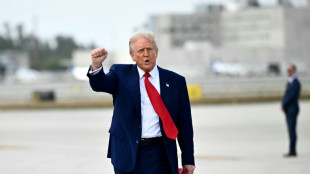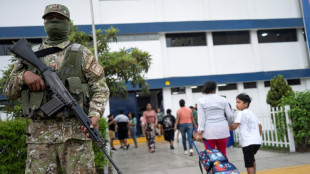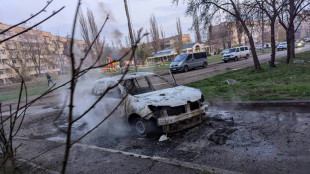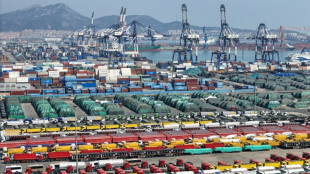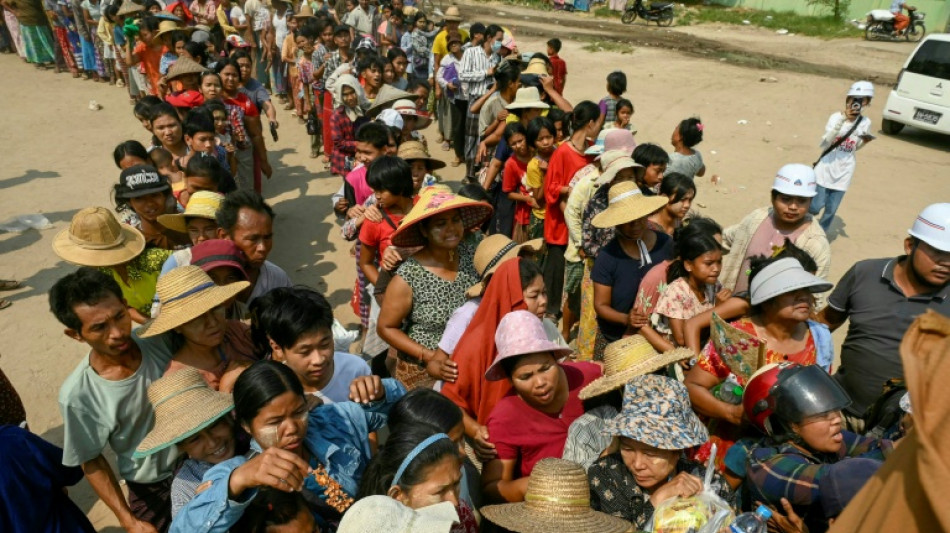

Protest as quake-hit Myanmar junta chief joins Bangkok summit
Protesters displayed a banner calling Myanmar's junta chief a "murderer" as he joined a regional summit in Bangkok on Friday, a week after a huge earthquake killed thousands, leaving desperate survivors pleading for food and shelter.
More than 3,000 people are confirmed dead after the 7.7-magnitude quake, and the United Nations estimates that up to three million may have been affected in some way -- many left without shelter after their homes were destroyed.
Many nations have sent aid and rescue teams, but on the ground in some of the worst-hit areas there is little sign of Myanmar's ruling military helping survivors.
Junta leader Min Aung Hlaing will hold talks with leaders from Bay of Bengal littoral nations at a plush Bangkok hotel on Friday.
The decision to invite him has drawn criticism, and outside the venue protesters hung a banner from a bridge reading: "We do not welcome murderer Min Aung Hlaing."
In Sagaing, the Myanmar city close to the epicentre of last week's quake and where an estimated 80 percent of buildings have been damaged, AFP journalists saw desperate scenes as hundreds of exhausted, hungry survivors scrambled for supplies.
Teams of citizen volunteers from around Myanmar piled into Sagaing in trucks laden with water, oil, rice and other basic necessities.
With so many homes in Sagaing and neighbouring Mandalay left uninhabitable by the quake, survivors have been sleeping in the streets for a week, and are badly in need of proper shelter.
A patch of land in Mandalay -- a dustbowl covered in trash -- has sprouted a tent city of people from ruined homes or others too scared to return because of aftershocks.
"There are many people who are in need," cab driver Hla Myint Po, 30, now living in tents with his family, told AFP.
"Sometimes when donors bring things it's chaos"
While the crisis rages in Myanmar, Min Aung Hlaing sat down Thursday night for a gala dinner with fellow leaders from the BIMSTEC group at the $400-a-night Shangri-La hotel in Bangkok.
The veteran general ousted Aung San Suu Kyi's elected government in a 2021 coup, triggering a bloody civil war, and has been accused of war crimes and serious human rights abuses.
Min Aung Hlaing is under multiple global sanctions and the International Criminal Court's chief prosecutor has sought an arrest warrant for him for alleged crimes against humanity committed against Rohingya Muslims.
Even as the Myanmar people struggled with the aftermath of the quake, the military carried out air strikes on rebel groups, drawing angry condemnation from international powers.
But the junta chief was given red carpet treatment by the Thai government as he arrived for the meeting with Prime Minister Paetongtarn Shinawatra and other leaders from Bay of Bengal nations.
- 'Deplorable' -
Myanmar's shadow opposition National Unity Government (NUG) condemned his presence at the summit, calling it an affront to justice "given the immense suffering has inflicted on the people of Myanmar".
"Allowing the junta leader and his representatives to participate in regional and international forums risks legitimising an illegal regime," the NUG said in a statement.
Yadanar Maung of the Justice for Myanmar campaign group said it was "deplorable" that Thailand and BIMSTEC were welcoming him.
"This legitimises and emboldens a military junta that the people of Myanmar have been resisting for over four years," Yadanar Maung said in a statement.
Shunned and sanctioned by many Western countries since the coup, the junta has turned to close allies Beijing and Moscow for support as it struggles to get the upper hand in a complex, multi-sided civil war.
BIMSTEC is Min Aung Hlaing's first foreign trip outside of China, Russia or Belarus since he attended another regional summit in Indonesia in 2021 soon after the coup.
The Bangkok meeting affords the isolated leader a rare chance for face-to-face diplomacy with key regional powerbrokers including Indian Prime Minister Narendra Modi.
The devastation wreaked by the quake, Myanmar's biggest in decades, prompted several key armed groups in the civil war to call a temporary ceasefire to allow aid to get through -- followed by the military.
But all sides still say they reserve the right to act in self-defence, and there have already been reports of sporadic fighting.
India's foreign ministry said the so-called "Quad Partners" -- which also include Australia, Japan and the United States -- welcomed "recent commitments to temporary, partial ceasefires".
I.Frank--MP

